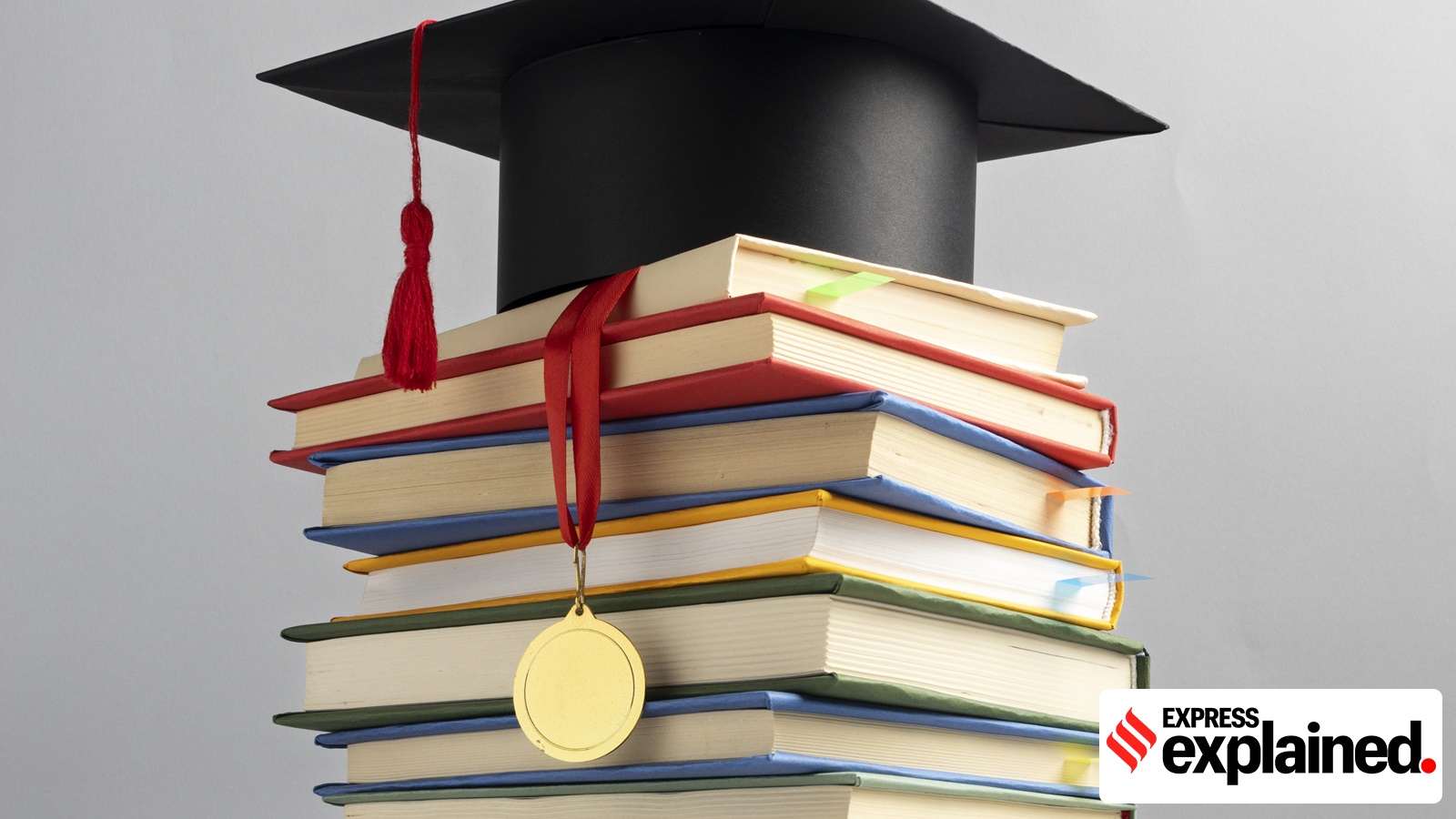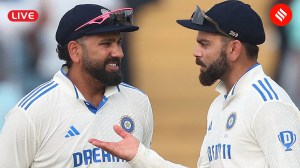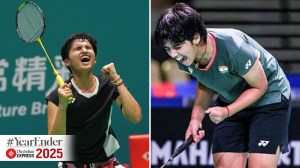The High Court of Madhya Pradesh has allowed an exceptionally bright 11-year-old to study in Class 9, setting aside technical objections that he was too young to be admitted to that class under the rules.
“Right to Education cannot be curtailed by imposing a condition regarding age limit,” Justice Vishal Mishra said in his order passed on August 19.

What are the rules concerning age in school education in India, and how are they applied to children with extraordinary academic capabilities?
First, what were the grounds of objection to the child’s promotion to Class 9?
According to the order, the “from the inception of his studies, the petitioner was a bright student scoring always excellent marks demonstrating his extraordinary capacity to learn more”.
The child studied from Class 1 to Class 8 “without any hindrance” in his school, but when he reached Class 9, “his registration was not done by the authorities citing age issue and… [he] was asked to either amend the date of birth in the Transfer Certificate or to obtain TC from the school”.
The child’s mother pleaded unsuccessfully for “special permission for registration of the petitioner as he is the bright student”. Counsel for petitioner submitted that the child has a high intelligence quotient (IQ), and that doctors had opined that he has “some extraordinary qualities and is a brilliant student”.
Story continues below this ad
The order noted that “The reasons assigned by the authorities for rejection is the norms that provides for particular age seeking admission in Class IXth. As the petitioner has not satisfied the requirement of the age limit as determined by the State/ Union Territory Government, therefore, the application was rejected.”
The Central Board of Secondary Education (CBSE) argued that Clause 4.1 of the National Education Policy, 2020, which deals with curriculum and pedagogy in schools, provides for a particular age limit, which the boy did not meet.
CBSE also produced its “Examination Bye-laws” Clause 6.1(a)(iii) of which says that a student would be eligible for admission to a particular class only if she “satisfies the requirements of age limits (minimum and maximum) as determined by the State/U.T. Government and applicable to the place where the School is located”.
It was also argued that there is no provision for grant of any relaxation in the age. “Without there being any challenge to the policy (NEP 2020), no relief can be extended to the petitioner,” CBSE submitted.
Story continues below this ad
So what do NEP 2020 provisions say about age criteria?
Subsection 1 of Clause 4 (“Curriculum and Pedagogy in Schools: Learning Should be Holistic, Integrated, Enjoyable, and Engaging”) says that “the curricular and pedagogical structure and the curricular framework for school education will…be guided by a 5+3+3+4 design” to serve the “needs and interests of learners at different stages of their development, corresponding to the age ranges of 3-8, 8-11, 11-14, and 14-18 years”.
Under the 5+3+3+4 formula, school education will be divided in four stages:
* Foundational Stage (ages 3-8) of five years, including three years in anganwadi or pre-school, and two years in primary school (Grades 1-2);
* Preparatory Stage (ages 8-11), in Grades 3-5;
* Middle Stage (ages 11-14), in Grades 6-8; and
* Secondary Stage (ages 14-18), split into two parts – Grades 9-10 and 11-12.
Story continues below this ad
In this case, the child was not yet of the age at which he could enter the Secondary Stage in school (Grade 9).
Have courts passed any similar judgments earlier?
Questions similar to the present case have come up before courts earlier.
* In its judgment dated January 11, 2024, Patna High Court asked an underage candidate to submit a representation to the CBSE chairman “along with all the relevant papers/ results”, and directed the chairman to consider the representation.
In this case, the petitioner was a 10-year-old boy with an exceptional academic record who wanted to sit for the Class 10 examination in 2025.
Story continues below this ad
The court took note of the CBSE bylaws under which a student at the time of admission in Class 1 could not be younger than 5 years, but ruled that the relevant section of the Bihar Education Code, 1961, dealing with “admission for the first time”, starts with the word “ordinarily” and as such, the age prescribed is meant for normal circumstances.
“If any student is child prodigy and has exceptional merit, in that case [the provision]…of the Code may not be treated as absolute and in case of exceptional merit of a student he may be allowed to appear in the Board Examination even below the prescribed age,” the court said.
* In March 2022, the Himachal Pradesh High Court allowed an 8-year-old child to study in Class 8 after a medical board in Shimla assessed her IQ at 128, just below the highest level that is considered the IQ of a genius.
The court allowed the child to be provisionally admitted in Class 8, and her overall progress was monitored on a regular basis by the school authorities.
Story continues below this ad
* In September 2021, Madras High Court dealt with the case of a 16-year-old who was not allowed to sit for that year’s NEET examination for admission to undergraduate medical courses because she was too young. The student had an exceptional IQ of 143, and had been granted a double promotion from Class 7 to Class 9, and was allowed to sit for her Class 10 and Class 12 examinations despite being underage.
The court held that when she was allowed by the CBSE to appear for her Class 12 board exam, then “there may be no justification” to “reject her request for age relaxation”.
The court observed that the “rules prescribed by CBSE vis-a-vis the Regulations on Graduate Medical Education, 1997 are contradictory to each other since the CBSE has not raised any objection for the student, even before the age of 16, while the Regulation 4(1) of the Regulations on Graduate Medical Education, 1997 framed by the Medical Council of India (MCI), insists the incumbent to complete the age of 17 years on or before 31st December of the year to become eligible to appear for examination for admission to the MBBS Course”.
The court said the CBSE and MCI were both “controlled and managed” by the Union of India, and that the MCI could not “take away the legitimate expectation” of the student “by denying her the opportunity to appear for the NEET 2021 examination, which will hit by ‘doctrine of legitimate expectation’ and amounts to denial of right guaranteed under Article 14 of the Constitution of India”.
Story continues below this ad
The judgment noted that “unless and otherwise, the said Rule is reconsidered by the MCI, this anomaly would continue”, and took the view that “the MCI has to look at the concern of such students and come up with some solution”.
But what is the problem if an exceptional student is promoted to a senior class meant for older students?
In the Himachal Pradesh case, the High Court said it was “deeply conscious of the situation that a child of such tender age…might face a lot of peer pressure, emotional and physical stress in future in case she is permitted to undertake class 8 examination at this stage”.
There would be “many such eventualities” which she may “face in future on account of her accelerated jumps at a tender age of 8 years which she and her parents might not even visualize today”, the court said.
Story continues below this ad
Dr Latika Gupta of the Department of Education, Delhi University, cautioned against equating high IQ with readiness for higher classes. “The theory of IQ, in itself, should not be the basis for such decisions. Child development is relative, school is not just about academics, it is also a setting where students interact with peers of the same age group. Pushing a child into a class with older students creates a mismatch in interests, concerns, and issues, and the child may eventually feel burdened,” she said.
A higher class, Dr Gupta said, “is not an indication of more intelligence, in fact, it may lead to pressure on the child to finish college at a younger age”. The theory of IQ itself is debatable, she said, “since intelligence is of different kinds”, and “moving to a senior class is not going to make one more intelligent”.








































